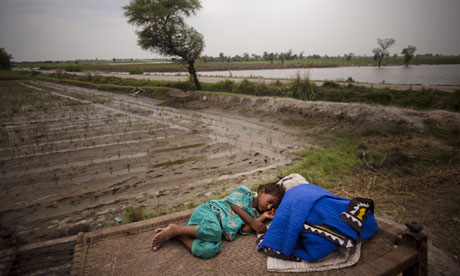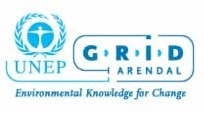Multilateral Development Banks Release Joint Report on Climate Change Finance
read more: http://climate-l.iisd.org/news/multilateral-development-banks-release-joint-report-on-climate-change-finance/223158/
 November 2013: According to the 'Joint Report on MDB Climate Finance 2012,' the multilateral development banks (MDBs) spent nearly US$27 billion to address climate change during the 2012 fiscal year, with over US$21 billion dedicated to mitigation and almost US$6 billion to adaptation. From these resources, the Global Environment Facility (GEF) and the Climate Investment Funds (CIF) have contributed to US$2 billion.
November 2013: According to the 'Joint Report on MDB Climate Finance 2012,' the multilateral development banks (MDBs) spent nearly US$27 billion to address climate change during the 2012 fiscal year, with over US$21 billion dedicated to mitigation and almost US$6 billion to adaptation. From these resources, the Global Environment Facility (GEF) and the Climate Investment Funds (CIF) have contributed to US$2 billion.
 3 September 2013: The World Bank has released a report, titled 'Integration of Short-Lived Climate Pollutants in World Bank Activities,' which highlights that the reduction of short-lived climate pollutants (SLCP), including black carbon, methane and hydrofluorocarbons (HFCs), brings immediate benefits for health, agriculture and climate change mitigation.
3 September 2013: The World Bank has released a report, titled 'Integration of Short-Lived Climate Pollutants in World Bank Activities,' which highlights that the reduction of short-lived climate pollutants (SLCP), including black carbon, methane and hydrofluorocarbons (HFCs), brings immediate benefits for health, agriculture and climate change mitigation.
 “World Bank. 2013. The Little Green Data Book 2013. © Washington, DC. https://openknowledge.worldbank.org/handle/10986/14396 License: CC BY 3.0 Unported.”
“World Bank. 2013. The Little Green Data Book 2013. © Washington, DC. https://openknowledge.worldbank.org/handle/10986/14396 License: CC BY 3.0 Unported.”


 » Livia Bizikova, World Bank, UNDP Tajikistan, 2012.Paper, 74 pages, copyright: UNDP TajikistanThe present Participatory Scenario Development (PSD) report was commissioned as one of the outputs of Phase I of the Pilot Programme for Climate Resiliency (PPCR) in Tajikistan.
» Livia Bizikova, World Bank, UNDP Tajikistan, 2012.Paper, 74 pages, copyright: UNDP TajikistanThe present Participatory Scenario Development (PSD) report was commissioned as one of the outputs of Phase I of the Pilot Programme for Climate Resiliency (PPCR) in Tajikistan.

 +1-202-729-7769 e-mail:cramirez@wri.org www:http://www.embarq.org/en/transforming-transportation-2013
+1-202-729-7769 e-mail:cramirez@wri.org www:http://www.embarq.org/en/transforming-transportation-2013
 Developing countries are faced with the dual challenge of reducing poverty while improving management of natural capital and mitigating the emission of greenhouse gases (GHGs) and local pollutants. The challenge is particularly acute for large, rapidly growing economies, such as India, China, and Brazil. In response to this challenge, Energy Sector Management assistance Program (ESMAP) and the World Bank began in 2007 to provide support to countries to develop long term frameworks for reducing GHG emissions in a way that is compatible with economic growth objectives and tied to national and sectoral plans. In total, seven studies were conducted between 2007 and 2010, for the following countries: Brazil, China, India, Indonesia, Mexico, Poland, and South Africa. This report collates the lessons learned from these studies and is intended as a practical guide for government officials, practitioners, and development agencies involved in low carbon development planning. The low carbon studies were tailored to the individual needs of each country involved. In Brazil, India, Indonesia, Mexico, and Poland the studies took the form of an economy-wide analysis of low carbon growth potential, employing a range of data and modeling tools. The governments of China and South Africa conducted their own analyses, but requested the assistance of ESMAP and the World Bank for peer review and to get international expertise on specific focus areas, such as energy efficiency and renewable energy. The combined outputs, and the modeling tools developed as part of the program, represent a significant contribution to international efforts on climate change mitigation and low carbon development.
Developing countries are faced with the dual challenge of reducing poverty while improving management of natural capital and mitigating the emission of greenhouse gases (GHGs) and local pollutants. The challenge is particularly acute for large, rapidly growing economies, such as India, China, and Brazil. In response to this challenge, Energy Sector Management assistance Program (ESMAP) and the World Bank began in 2007 to provide support to countries to develop long term frameworks for reducing GHG emissions in a way that is compatible with economic growth objectives and tied to national and sectoral plans. In total, seven studies were conducted between 2007 and 2010, for the following countries: Brazil, China, India, Indonesia, Mexico, Poland, and South Africa. This report collates the lessons learned from these studies and is intended as a practical guide for government officials, practitioners, and development agencies involved in low carbon development planning. The low carbon studies were tailored to the individual needs of each country involved. In Brazil, India, Indonesia, Mexico, and Poland the studies took the form of an economy-wide analysis of low carbon growth potential, employing a range of data and modeling tools. The governments of China and South Africa conducted their own analyses, but requested the assistance of ESMAP and the World Bank for peer review and to get international expertise on specific focus areas, such as energy efficiency and renewable energy. The combined outputs, and the modeling tools developed as part of the program, represent a significant contribution to international efforts on climate change mitigation and low carbon development.
 Invitation to Webinar: Green Economy in a Blue World (Session
3)
Invitation to Webinar: Green Economy in a Blue World (Session
3)